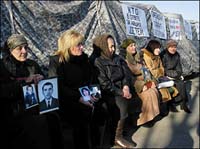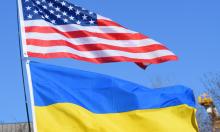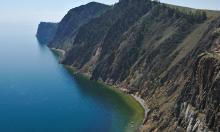Authorities cover-up the facts during the trial, Beslan victims' relatives say
The victims' family members said they believed Nur-Pashi Kulayev was guilty but they expressed frustration that the yearlong trial had failed to reveal all those responsible for the 331 deaths - more than half of them children - in the small southern Russian town.

Judge Tamerlan Aguzarov, who has already indicated Kulayev's guilt as he sums up the case against him, read victims' accounts of the hostage-takers growing increasingly nervous and aggressive as the three-day crisis in Sept. 2004 wore on.
By the second day, they were refusing to let the more than 1,200 captives leave the stiflingly hot sports hall where they were held to go to the bathroom. They denied the hostages water, and many resorted to drinking urine to try to slake their thirst.
Most victims died on the third day in a hail of gunfire and explosions that erupted after one of the bombs the attackers rigged at the school went off, and security forces rushed to free hostages.
"I still have not learned the truth from the trial. I wanted to know who caused the first explosions and why my husband was killed. There is no such information and I think the authorities are purposely covering it up," said Olga Kravchenko, 74, whose husband had worked as a janitor at the school.
"This is a virtual show and it is obvious that the authorities are trying to cover things up in the Kulayev trial," said Emma Betrozova, 43, who lost her husband and two sons in the siege.
Aguzarov read a statement to prosecutors from a former hostage he identified only by her last name, Atayeva, who said that Kulayev had beaten her with the butt of an automatic rifle and had refused to allow her son to drink - the only testimony so far of Kulayev's direct role in abusing the hostages.
"There is no doubt of Kulayev's guilt, because he was among the rebels, but there is no witness testimony that he shot anyone," said Murat Kaboyev, member of a public commission established to investigate the tragedy.
"But of course Kulayev is guilty," Kaboyev said, adding that the defendant had been seen among the attackers in a room where about 20 men were shot dead early in the crisis.
Prosecutors have called for the death penalty for Kulayev, who has admitted to participating in the September 2004 attack along with some 30 other heavily-armed militants but denied killing anybody.
It was unclear, however, whether Kulayev could be executed, since Russia imposed a moratorium on the death penalty when it joined the Council of Europe eight years ago. Kaboyev said the court would need a stronger case against Kulayev to sentence him to death.
Subscribe to Pravda.Ru Telegram channel, Facebook, RSS!





